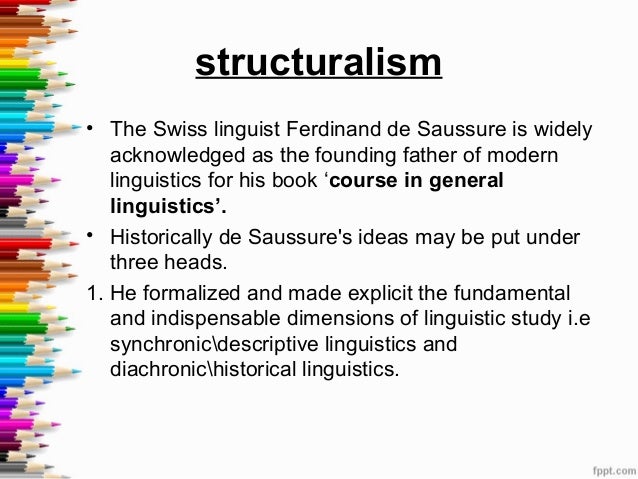Course In General Linguistics By Ferdinand De Saussure Pdf Viewer


Preface to the First Edition
Preface to the Second Edition
Preface to the Third Edition
Editor's Introduction, Roy Harris
Introduction
1. A Brief Survey of the History of Linguistics
2. Data and Aims of Linguistics: Connexions with Related Sciences
3. The Object of Study
4. Linguistics of Language Structure and Linguistics of Speech
5. Internal and External Elements of a Language
6. Representation of a Language by Writing
7. Physiological Phonetics
Appendix: Principles of Physiological Phonetics
1. Sound Types
2. Sounds in Spoken Sequences
Part One: General Principles
1. Nature of the Linguistic Sign
2. Invariability and Variability of the Sign
3. Static Linguistics and Evolutionary Linguistics
Part Two: Synchronic Linguistics
1. General Observations
2. Concrete Entities of a Language
3. Identities, Realities, Values
4. Linguistic Value
5. Syntagmatic Relations and Associative Relations
6. The Language Mechanism
7. Grammar and Its Subdivisions
8. Abstract Entities in Grammar
Part Three: Diachronic Linguistics
1. General Observations
2. Sound Changes
3. Grammatical Consequences of Phonetic Evolution
4. Analogy
5. Analogy and Evolution
6. Popular Etymology
7. Agglutination
8. Diachronic Units,Identities and Realities
Appendices
Part Four: Geographical Linguistics
1. On the Diversity of Languages
2. Geographical Diversity: Its Complexity
3. Causes of Geographical Diversity
4. Propagation of Linguistic Waves
Part Five: Questions of Retrospective Linguistics Conclusion
1. The Two Perspectives of Diachronic Linguistics
2. Earliest Languages and Prototypes
3. Reconstructions
4. Linguistic Evidence in Anthropology and Prehistory
5. Language Families and Linguistic Types
Index
show more
Journal Of Documentation
Ferdinand de Saussure is commonly regarded as one of the fathers of 20th Century Linguistics. His lectures, posthumously published as the Course in General Linguistics ushered in the structuralist mode which marked a key turning point in modern thought. The founder of modern linguistics, Ferdinand de Saussure inaugurated semiology, structuralism, and deconstruction and made possible the work of Jacques Derrida, Roland Barthes, Michel Foucault, and Jacques Lacan, thus enabling the development of French feminism, gender studies, New Historicism, and postcolonialism. Based on Saussure's lectures, Course in General Linguistics (1916) traces the. A reader, who has mastered the grammar that governs the production of a text and operates within it, can understand the text. Structuralism in fact has its roots in the thinking of the Swiss linguist Ferdinand de Saussure (1857. His 'Course in General Linguistics', published after his death, influenced.